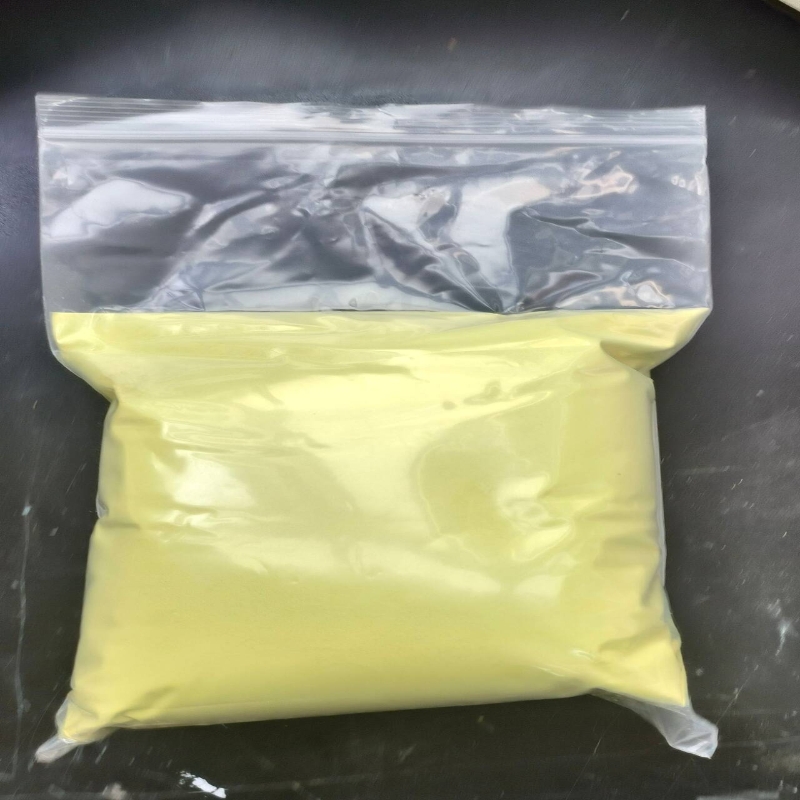-
Categories
-
Pharmaceutical Intermediates
-
Active Pharmaceutical Ingredients
-
Food Additives
- Industrial Coatings
- Agrochemicals
- Dyes and Pigments
- Surfactant
- Flavors and Fragrances
- Chemical Reagents
- Catalyst and Auxiliary
- Natural Products
- Inorganic Chemistry
-
Organic Chemistry
-
Biochemical Engineering
- Analytical Chemistry
- Cosmetic Ingredient
-
Pharmaceutical Intermediates
Promotion
ECHEMI Mall
Wholesale
Weekly Price
Exhibition
News
-
Trade Service
Since THEDUCE-IT trial breakthrough proved that high purity EPA drugs (Vascepa) significantly reduce cardiovascular risk, and subsequently recommended by the American Heart Association (AHA) scientific report, the role of fish oil component omega-3 fatty acids in the prevention of cardiovascular disease can be repeated and verified, has been a matter of concern.
, however, two important trials recently presented at the AHA 2020 Scientific Conference were both double-folded, and the use of omega-3 in high-risk populations did not provide more cardiovascular benefits than corn oil placebos.
this wave of reversal has reignited the debate.
was Vascepa's positive results in the REDUCE-IT study? Omega-3 ingredients to play a meaningful "heart care" effect, in the composition, dosage, etc. , what are the key? STRENGTH study: Similar high-dose, very different negative results This double-blind randomized trial called STRENGTH was led by the Cleveland Clinic Heart and Vascular Institute.
trial tested whether increased omega-3 therapy improved cardiovascular outcomes in patients who had been treated with statins for at least 4 weeks and were still at increased cardiovascular risk, had high triglycerides, and had low HDL-C.
study was published simultaneously in the Journal of the American Medical Association (JAMA) with omega-3, a formulation of pyrethloric acid (Epanova, omega-3 CA) that contains both EPA and DHA, which can improve biousability.
studies have shown that the use of epanova doses of 4 g/day in trials had a similar effect on plasma EPA levels to approved purified EPA, while supplementing DHA levels.
trial included 13,078 subjects from 22 countries around the world who were randomly grouped to receive 4 grams of Epanova or corn oil placebo per day.
study focused on the effects on major adverse cardiovascular events (MACEs), including cardiovascular death, heart attack, stroke, coronary hemodynamic reconstruction, or unstable angina.
the trial was stopped early because of negative results from the interim analysis.
epanova did raise plasma omega-3 levels in patients in the trial group.
12 months, plasma EPA increased by 268.8% and DHA by 39.7%, while placebo group decreased by 10.5% and 6.9%, respectively.
, however, elevated plasma levels did not translate into cardiovascular prevention benefits.
reduction of triglycerides in patients in the trial group (-19.0% vs -0.9%, P -lt;0.001).
high-density lipoprotein cholesterol (LDL-C) increased by 1.2% in patients in the control group and decreased by 1.1% in the control group.
42-month follow-up period showed that 12 per cent and 12.2 per cent of patients in both groups had MACE events, with similar risks.
, Epanova failed to prevent MACE compared to corn oil placebos. The MACE risk was similar in the
Omega-3 group (blue line) and the corn oil control group (yellow line) (Photo source: Reference: Reference 1)) in addition, more patients in the trial group (24.7% vs. 14.7%) experienced gastrointestinal adverse events and a 69% increased risk of new atrial fibrillation (2.2% vs. 1.3%) of patients.
OMEMI trial: Low-dose supplements are ineffective for high-risk groups Another trial called OMEMI came from Norway and was led by a team at Oslo University Hospital.
tests tested the effects of low doses of 1.8 g/tianomega-3 supplements (930mg EPA plus 660mg DHA) or corn oil placebo on cardiovascular event risk over the next 2 years in 1,027 elderly people (70-82 years old) who had recently experienced heart attack.
the study team, the subjects represented "very high-risk groups."
two years after the OMEMI study was published in the journal AHA, patients in the omega-3 supplement group showed an advantage in blood indicators, with EPA and DHA levels increasing by 87% and 16%, respectively, and the control group decreasing by 13% and 8%, respectively.
triglycerides decreased by 8.1% in patients in the Omega-3 supplement group and by 5.1% in the placebo group.
LDL-C in neither group of patients changed significantly.
, but similarly, improvements in blood indicators did not translate into gains in cardiovascular outcomes.
At the main endpoints of the trial, 21.4% of patients in the omega-3 supplement group and 20.0% in the control group had non-fatal acute heart attack, accidental blood reconstruction, stroke, hospitalization or death due to heart failure, respectively, and there was no difference in the risk of cardiovascular events between the two groups.
addition, the omega-3 supplement showed an 84 percent increase in the risk of atrial fibrillation, a finding that the team found noteworthy, although not statistically significant, considering that older people themselves are at high risk of atrial fibrillation.
these findings, the team does not recommend taking any dose of omega-3 dietary supplements and should accept prescription drug doses if necessary.
the discussion of the contradictory results of several trials compared to the REDUCE-IT trial, both of which were published using a mixture of EPA and DHA.
view is that DHA may not be the icing on the cake, but may instead counteract the cardiovascular benefits of DPA.
Deepak Bhatt of Harvard Medical School, lead researcher on the REDUCE-IT trial, said some basic scientific data is emerging to support this view, and that "there is already another trial, JELIS, that has shown the cardiovascular benefits of US EPA alone."
" Dr. Roger S. Blumenthal's team also noted that "while a moderate increase in DHA does not appear to offset the effects of the significant increase in EPA, there are no trials of a single component of DHA to verify the effects of DHA on atherosclerotic cardiovascular disease."
"s REDUCE-IT trial proves that Vascepa, which has been approved by the FDA, is a high-purity EPA, and another significant difference in the three trials without DHA (Photo: Vascepa.com) is the choice of a controlled placebo.
the two trials used corn oil, while the REDUCE-IT trial chose mineral oil.
. Steven E. Nissen of the Cleveland Clinic noted that in the STRENGTH trial, corn oil did not show adverse effects on lipoprotein B, LDL-C, and inflammatory marker hypersensitive C-reactive protein levels.
the risk of the control group by not excluding the interaction of mineral oils with statins in REDUCE-IT, but instead showed the clinical benefits of the treatment group.
, on the other hand, under high-dose EPA similar to REDUCE-IT, why did the STRENGTH trial also improve plasma EPA concentration but not ultimately affect cardiovascular events? In an editorial published in the same journal, Dr. Roger S. Blumenthal of Johns Hopkins University School of Medicine and three other experts speculated that the formulation process may have been a factor.
" formula may alter the distribution of EPA in the body and affect its effect on downstream tissues.
and plasma EPA concentrations may not reflect this difference.
, all three trials suggest that omega-3 may increase the risk of atrial fibrillation.
, however, in the VITAL study assessing the health effects of multiple supplements, including omega-3, marine omega-3 did not show an effect on atrial fibrillation events after more than five years of follow-up.
based on current evidence, Dr. Salim Virani of Baylor College of Medicine says this is still a concern.
the question of whether Omega-3 fatty acids can improve health is critical for patients, doctors, and the health care system.
but based on current knowledge, we are still unseeded about the answer to this question.
" in a editor's note, JAMA Deputy Editor Gregory Curfman concludes.
hope that the accumulation of more evidence will give us a clearer direction.
, but based on available information, it is more certain that low-dose fish oil, which is used only as a dietary supplement, will not have a significant effect.
references to nicholls SJ, et al., (2020). Effect of high-dose omega-3 fatty acids vs corn oil on major adverse cardiovascular events in patients at high cardiovascular risk: the STRENGTH randomized clinical trial. JAMA, DOI: 10.1001/jama.2020.22258. [2] Sharma G, et al., (2020). Effects of omega-3 fatty acids on major adverse cardiovascular events: what matters most: the drug, the dose, or the placebo?. JAMA, DOI: 10.1001/jama.2020.22387. [3] Curfman G. (2020). Do omega-3 fatty acids benefit health?. JAMA, DOI: 10.1001/jama.2020.22898. [4] Kalstad AA, et al., (2020). Effects of n-3 fatty acid supplements in elderly patients after myocardial infarction: a randomized controlled trial. Circulation, DOI: 10.1161/CIRCULATIONAHA.120.052209. [5] Omega-3s Humbled by Corn Oil Placebo in Two Trials. Retrieved November 17, 2020, from




![2-(Hydroxymethyl)benzo[b]thiophene](https://file.echemi.com/fileManage/upload/cas/593/e79a972f-b55d-4dc1-9113-841c417e0a89.png)


